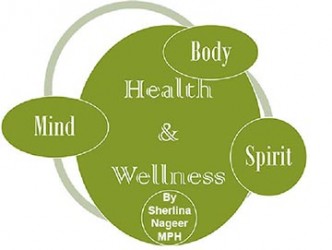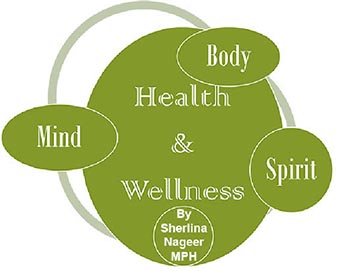As someone who loves street food and eats about the place all the time, and who grew up hearing the “if it doesn’t kill, it’ll fatten” mantra, I’ve come to expect a little diarrhoea now and then as the price to pay for my fondness for street food. I know people who only eat food that they themselves have cooked and who are super vigilant about germs and cleanliness. Because I’m healthy overall and because I have access to running water and sanitation, I can afford to be cavalier about an occasional bout of diarrhoea. But for some people—particularly those with underlying health problems, compromised immune systems, the very young, or the elderly—diarrhoea can be life threatening.
According to the World Health Organization, there are over 2 million deaths from diarrhoeal diseases annually, worldwide. Most of these are caused by contaminated food and/or water, with poor sanitation and hygiene being major contributing factors. In fact, more people die from unsafe water and not having basic sanitation each year than from war and other forms of violence! Apart from death, diarrhoeal diseases also have a negative effect on quality of life and economic activity, with affected individuals being unable to work or go about their usual routine for significant periods of time.
In most countries with properly functioning health systems, food safety, sanitation, and hygiene are key components of the public health system, with regular training, surveillance, and inspection of food handlers and establishments preparing and serving food. Unfortunately however, in Guyana, the public health sector, like many other sectors, is woefully underdeveloped and under-resourced.
A recent case of typhoid which was brought to my attention this past week serves as a clear illustration of these problems. The affected individual got sick immediately after eating at a popular franchise in a Georgetown mall and was seen by a doctor who diagnosed typhoid. Typhoid is caused by the ingestion of food or beverage contaminated with faeces containing a type of Salmonella bacteria. If there was adherence to proper sanitation and hand-washing techniques, nobody would get typhoid. The fact that in 2014, even one person contracted this illness, reveals a significant breakdown of our public health system and is cause for serious concern.
 In Georgetown, the responsibility for food safety lies with the Food and Hygiene Department of the City Council. Again, unfortunately, in Guyana today, one cannot talk about the Georgetown City Council without politics rearing its ugly head. The conflict between the local and central governing bodies, with opposing entities battling over decision-making, priority setting, and resource allocation, has exacerbated long-standing problems and made the management and effective functioning of these agencies virtually impossible.
In Georgetown, the responsibility for food safety lies with the Food and Hygiene Department of the City Council. Again, unfortunately, in Guyana today, one cannot talk about the Georgetown City Council without politics rearing its ugly head. The conflict between the local and central governing bodies, with opposing entities battling over decision-making, priority setting, and resource allocation, has exacerbated long-standing problems and made the management and effective functioning of these agencies virtually impossible.
The fact is that there are too few Food Safety Officers and too much work for them to do properly. As a result, most eating establishments (not to mention individual roadside food vendors) in Guyana are not regularly inspected, with a corresponding lack of accountability—again, as in so many other aspects of Guyanese life today. This would be problematic at any time, but even more so nowadays as more and more ‘fast food’ joints pop up across the country, and more and more Guyanese are eschewing home cooking in favour of eating out at these places.
A food safety bill put forth earlier this year by the Minister of Agriculture seeks to set up a food safety agency (since nothing like that exists currently), and focuses mostly on ensuring that food exports meet international standards. Protection of the health of local consumers is limited, with most Guyanese who get sick from consuming contaminated food/beverages just suffering in silence. Most do not know where to turn to for assistance, information, or recourse; in fact, most don’t even think of such things in the first place. Like so many other things, Guyanese have become accepting of suffering and atrocity, just ‘taking it’, and just hoping/praying they survive. A little diarrhoea, sadly, is the least of many people’s problems in Guyana today.
Many Guyanese still lack access to clean and potable water. Even in the capital of Georgetown, many households are without running water for many hours daily. People are forced to purchase bottled water, as well as to collect and store water for later use. Containers of water are vulnerable to contamination by a number of sources such as insects, frogs, and other creatures, as well as chemicals and toxins in the environment. Lack of regular running water also contributes to poor sanitation, with the simple preventative measure of hand washing not being done properly or consistently enough, contributing to the spread of diarrhoeal diseases.
Sanitation cannot be discussed without talking about waste management. This, in particular, continues to be an ongoing challenge throughout Guyana. Although millions have recently been allocated to nationwide ‘clean up campaigns’, less attention has been paid to the prevention of littering in the first place, the development of alternative disposal methods like recycling and composting, the production and promotion of biodegradable containers and packaging materials, or the sanctioning of perpetrators. The accumulation and lack of proper disposal of waste encourages the breeding of vermin like rats and cockroaches, as well as other pests like mosquitoes which are responsible for the spread of serious illnesses like dengue, malaria, and chikungunya.
Public health, when understood and implemented properly, is about prevention first and foremost. The old adage about prevention being cheaper than the cure remains true; oftentimes it is simple measures that prevent major diseases and disasters. Not paying enough attention to basic but fundamental pillars of health and well-being like ensuring clean water and proper sanitation for all segments of the Guyanese population is courting trouble.
There needs to be a greater focus on this from all sectors of society—from individuals and community groups to private sector organizations as well as government bodies. Better hygiene and sanitation, less diarrhoea, more accountability, increased health and well-being. This is not rocket science. Let’s make it happen, Guyana!
Sherlina can be contacted at ssnageer @yahoo.com










